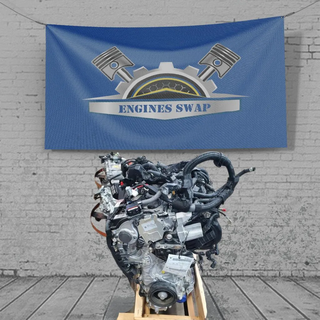
1. Determine Your Needs
Before starting your research, clearly identify the specific engine requirements for your vehicle:
Make and Model Compatibility: Ensure the engine matches your automobile’s make, model, and year.
Engine Specifications: Verify the engine size, type, and any specific features required.
2. Source Reputation
Choosing a professional source is essential for purchasing a good used engine:
Dealerships and Professional Mechanics: Often provide more reliable options and may even offer warranties. You can also check enginesswap they offer good quality engines plus assured warranty
Auto parts store : Can be a good source but check the engine’s condition thoroughly. BluePrism Automotive is a
3. Engine History
Understanding a brief history of the engine helps assess its potential lifespan:
Mileage: Lower mileage often means less wear.
Maintenance Records: Look for engines with detailed service histories.
Reason for Removal: Know why the engine was taken out in the original vehicle.
4. Physical Inspection
A thorough inspection can reveal a whole lot about the engine’s condition:
Visual Check: Look for warning signs of damage, rust, or leaks.
Compression Test: Ensures the engine maintains adequate pressure.
Oil Condition: Check the oil for contamination or unusual color.
5. Engine Warranty
A warranty provides satisfaction and protection against future issues:
Duration and Coverage: Understand the length with the warranty and what parts or issues are covered.
Source of Warranty: Prefer warranties from reputable dealers or manufacturers.
6. Compatibility and Fitment
Ensure the used engine will fit and are employed in your vehicle without extensive modifications:
Engine Mounts: Confirm the engine mounts align with your automobile.
Electronic Compatibility: Verify that this engine’s electronics and sensors are compatible with your car or truck’s system.
Transmission Match: Ensure the engine is compatible together with your transmission type.
7. Cost Analysis
Analyze the cost of the used engine and compare it with options:
Price: Ensure the costs are reasonable and competitive.
Installation Costs: Factor in the expense of professional installation.
Potential Repairs: Consider any other costs for parts or repairs.
8. Seller’s Return Policy
Understand the seller’s return policy should the engine isn't as described or doesn’t fit:
Return Window: Check how long you have to return the engine.
Restocking Fees: Be aware of any fees connected with returning the engine.
Condition for Return: Ensure you see the condition requirements for any return.
9. Vehicle Identification Number (VIN)
Checking the VIN provides additional assurance:
Match VIN: Ensure the engine VIN matches your motor vehicle’s requirements.
Vehicle History Report: Use the VIN to secure a history report of the engine’s original vehicle.
10. Professional Assistance
Consider getting professional help to make an informed decision:
Mechanic’s Opinion: A mechanic can provide an expert opinion around the engine’s condition and compatibility.
Engine Diagnostics: Have a professional run diagnostics to check on for potential issues.
Purchasing pre-owned engine available involves expose process to ensure you get a trusted and efficient replacement. By considering the factors outlined above, you can make the best decision that balances cost with quality and longevity. Always prioritize sourcing from reputable sellers and verifying the engine’s background condition before you make a purchase.